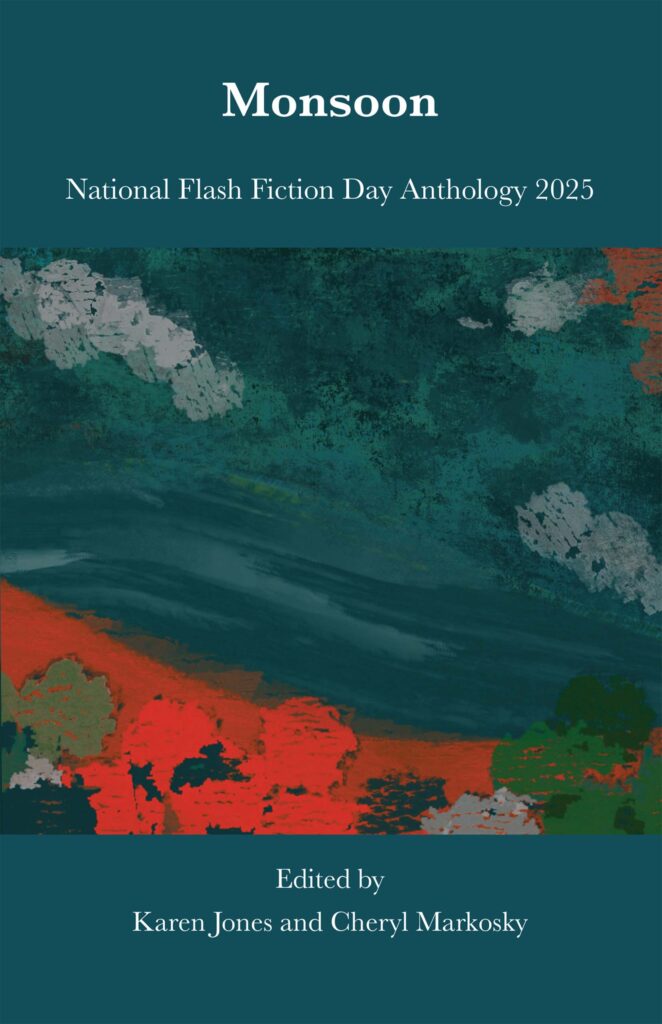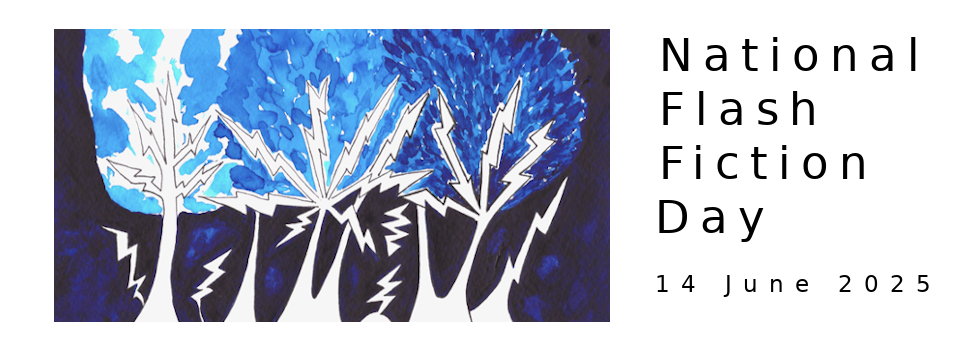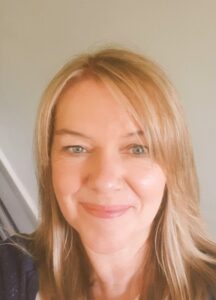Welcome to the sixth and final instalment in our series of interviews with this year's National Flash Fiction Day Anthology Editors and Microfiction Competition Judges! Submissions for the Anthology and Microfiction Competition are open until 15 February 2025.
This week, NFFD's Diane Simmons chats with guest editor Cheryl Markosky who is co-editing this year's anthology. They discuss roots, influences and dinner parties, as well as Cheryl's advice for those submitting work to this year's anthology....
 DS: Firstly, thank you so much for agreeing to be this year’s Co-editor. This year’s theme is SEASONS. Do you have any thoughts on what kind of flash you would like to see in the inbox, or how writers should approach the theme?
DS: Firstly, thank you so much for agreeing to be this year’s Co-editor. This year’s theme is SEASONS. Do you have any thoughts on what kind of flash you would like to see in the inbox, or how writers should approach the theme?
CM: I'm delighted to be co-editing with Karen Jones, who I've always admired as a writer and a person (she's terrific fun!). I'd like to see new approaches when tackling this year's theme. There are well-worn tropes in flash writing – many of them pretty gloomy – so it would be interesting to see people take risks with form and well, have a go at irreverent, surreal and humorous stories. I'm also a big fan of what I call "quiet flashes" – little slices of life that don't appear all that momentous, but underneath there's a lot going on.
DS: You are a Canadian writer, living part of the year in Nevis in the Caribbean and part of the year in the UK. Does where you are living at the time affect the kind of story you write? Yes, totally.
CM: I write best on Nevis, where there's less to distract me. Sometimes, monkeys creep into my work (we have an awful lot of green vervet monkeys on the island), like a story I had published about a woman breastfeeding a monkey (don't ask). And when I'm in London I love observing city life. Old men always sitting at the same table in McDonalds cropped up in one story. Oddly enough though, Canada's fighting its way into my writing now, even though I'm remiss in going back to my homeland as much as I should. You can take the girl out of the Crowsnest Pass (where I grew up in the Rockies), but you can't take the Crowsnest Pass out of the girl!
DS: Can you remember when you first encountered flash fiction?
CM: I stumbled upon flash fiction years back, without knowing it really, when I had a micro-story published by Reader's Digest. Then during lockdown, I was going a bit mad and thought about creative writing. I remembered Jude Higgins from a writing group I attended a couple of times in Bath and tracked her down online. I was hugely lucky to then become a member of her Thursday writing group alongside several flash fiction megastars. I was blown away by the power of teensy stories that punch above their weight coming from the pens of all these amazing people.
DS: If you could choose three writers to have round for dinner, who would they be? And what would you cook (or order in)?
CM: Elizabeth Strout, Katherine Heiney, Niall Williams. And if I'm also allowed a ghost, Alice Munro. I'd cook favourites from my Canadian-Polish-Italian childhood, such as spaghetti with meatballs, pierogis, cabbage rolls and Saskatoon Pie, all washed down with vodka and A&W root beer. I'd ask Stanley Tucci to help serve the food while reading extracts from his new book, What I Ate in One Year, which I reckon would go well with the meatballs.
DS: You are a freelance journalist, writer and theatre critic. This must keep you rather busy. What do you enjoy doing in your free time?
CM: I race around doing theatre reviews in southern England and London, as well as corporate journalism on property and travel. When I do get spare time I do yoga, swim, cycle, read and drag my family to art galleries (I studied Art History with the Open University). I belong to two book clubs, which is probably one book club too many. I'm also an avid fan of BBC Radio 4's The Archers, the longest running daily soap in the world. Reading this back, I realise I could be a strong candidate for having the most boring dating profile ever!
Born in Calgary, Canada, Cheryl Markosky now splits her time between London and Wiltshire in the UK, and the Caribbean. She writes flash and short stories alongside working as a journalist and theatre reviewer. Cheryl's writing can be found in EllipsisZine, New Flash Fiction Review, Mslexia, Maudlin House, The Molotov Cocktail, Janus Literary, The Cabinet of Heed, The Drabble, Urban Tree Festival, WalkListenCreate (where she was writer-in-residence), and National Flash Fiction Day and Flash Fiction Festival anthologies. You can find out more about Cheryl on her website www.cherylmarkosky.com, and on X @cherylmarkosky and Facebook cheryl.markosky.
 Thanks to Sudha Balagopal, author of the eponymous story and to our artist-in-residence Jeanette Sheppard who provided the cover image.
Thanks to Sudha Balagopal, author of the eponymous story and to our artist-in-residence Jeanette Sheppard who provided the cover image.

